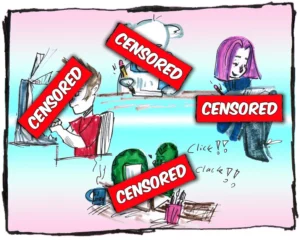“Unlock the Secrets: 8 Hidden Clues You’ve Encountered a Difficult Person and How to Master the Art of Dealing with Them!”
Have you ever found yourself tiptoeing around someone, constantly second-guessing your every word and action? If so, chances are you’ve encountered a difficult person—and let’s be real, navigating relationships in these situations can feel like an Olympic sport! Whether it’s the relentless negativity, the lack of empathy, or the seemingly endless drama, some individuals can certainly make the simple act of connecting with others a Herculean task. Recognizing the signs that indicate you’re in the company of such personalities is crucial, especially if you want to maintain your own peace of mind. So, in this article, I’m sharing nine subtle clues that signal you’re dealing with a hard-to-handle individual, along with some practical strategies for managing these relationships. After all, life is far too brief to be bogged down by negativity, right? Let’s dive in and take back our emotional well-being—because you deserve it! LEARN MORE.

Navigating relationships can be tricky. And let’s be honest, some people just make it a little harder than others.











